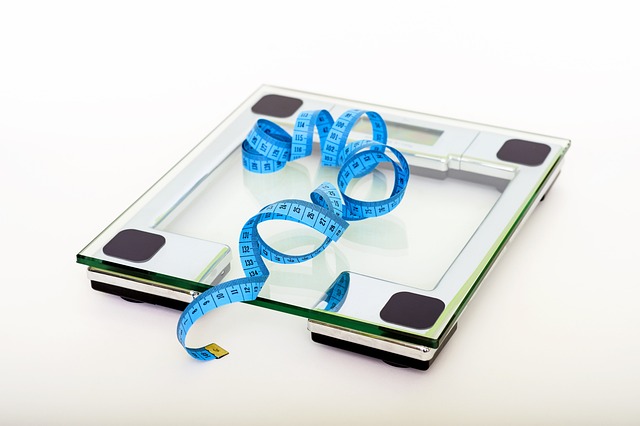Losing weight without exercise
Losing weight is a common goal that many people strive for, but not everyone enjoys or has the time for regular exercise. Fortunately, losing weight without exercise is possible, but it requires a mindful approach to eating and lifestyle habits. In this article, we will cover some of the strategies that you can use to reduce your calorie intake, increase your nutrient intake, and sustainably lose weight without exercise.
Understanding calorie intake and expenditure
The concept of weight loss is simple – you need to be in a calorie deficit, meaning that you consume fewer calories than you burn. This creates a gap that your body fills by burning stored fat. To lose one pound of fat, you need to create a deficit of 3,500 calories. You can achieve this by reducing your calorie intake, increasing your calorie expenditure, or a combination of both.
Mindful eating: The importance of conscious consumption
Mindful eating is the practice of paying attention to your food and your body’s hunger and fullness signals. It can help you avoid overeating and make healthier food choices. To eat mindfully, try to eat slowly, savor each bite, and avoid distractions such as TV or your phone. Also, listen to your body’s hunger and fullness cues, and stop eating when you feel satisfied, not stuffed.
Tips for reducing calorie intake without feeling deprived
Reducing your calorie intake can be challenging, especially if you’re used to eating large portions or calorie-dense foods. However, there are some tricks you can use to cut calories without feeling deprived. For example, you can switch to low-calorie alternatives such as skim milk, light salad dressing, or sugar-free soda. Also, try to eat more fruits and vegetables, which are low in calories but high in fiber and nutrients.
Choosing nutrient-dense foods over calorie-dense ones
Nutrient-dense foods are those that provide a high amount of nutrients per calorie, such as fruits, vegetables, whole grains, lean proteins, and healthy fats. On the other hand, calorie-dense foods are those that provide a high amount of calories per serving but few nutrients, such as fast food, sweets, and processed snacks. By choosing nutrient-dense foods over calorie-dense ones, you can satisfy your hunger and nourish your body while still losing weight.
Portion control: How to eat smaller portions without hunger pangs
Portion control is another key strategy for weight loss. By eating smaller portions, you can reduce your calorie intake without feeling hungry or deprived. To practice portion control, try using smaller plates, measuring your food with cups or spoons, and pre-portioning your snacks into small containers. Also, try to eat slowly and mindfully, so you can savor each bite and feel satisfied with less food.
Mastering the art of meal planning
Meal planning is the process of preparing your meals in advance, so you have healthy options ready when you’re hungry. It can help you save time, money, and calories, and avoid impulsive or unhealthy food choices. To start meal planning, make a list of your favorite healthy recipes, shop for the ingredients, and prepare your meals in bulk. Also, consider using a meal delivery service or meal prep kits for added convenience.
Healthy snacking: What to eat and what to avoid
Snacking can be a healthy part of your diet if you choose the right foods and control your portions. Some healthy snack options include fresh fruit, vegetables with hummus, Greek yogurt, nuts, and seeds. On the other hand, you should avoid sugary or salty snacks, such as candy, chips, and cookies, which can sabotage your weight loss efforts.
Hydration: Drinking enough water for weight loss
Hydration is essential for your overall health and weight loss. Drinking enough water can help you feel full, flush out toxins, and boost your metabolism. A good rule of thumb is to drink at least eight glasses of water per day, or more if you’re active or live in a hot climate. Also, consider drinking herbal tea or flavored water for added variety and hydration.
Managing stress and sleep for weight loss
Stress and sleep are two lifestyle factors that can impact your weight loss efforts. Chronic stress can increase your cortisol levels, which may lead to weight gain and cravings, while poor sleep can disrupt your hormones and appetite regulation. To manage stress, try practicing relaxation techniques such as yoga or meditation, and prioritize self-care. To improve your sleep quality, aim for 7-9 hours of sleep per night, and establish a consistent sleep routine.
The role of supplements in weight loss
Supplements are not a magic pill for weight loss, but they can complement a healthy diet and lifestyle. Some supplements that may support weight loss include fiber, probiotics, green tea extract, and garcinia cambogia. However, always consult with your healthcare provider before taking any supplements, and be wary of any claims that sound too good to be true.
Making sustainable lifestyle changes for lasting results
Losing weight without exercise is possible, but it requires a mindful and sustainable approach to your diet and lifestyle habits. By reducing your calorie intake, increasing your nutrient intake, practicing portion control, meal planning, and healthy snacking, you can achieve your weight loss goals without feeling deprived or hungry. Also, remember to stay hydrated, manage your stress and sleep, and seek support from a healthcare provider or a registered dietitian if necessary. With these strategies, you can make lasting changes to your health and well-being.

